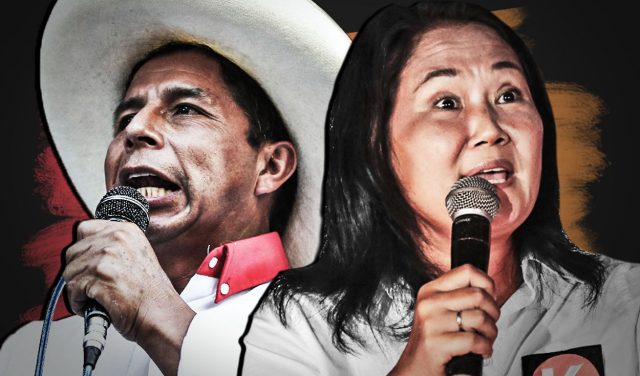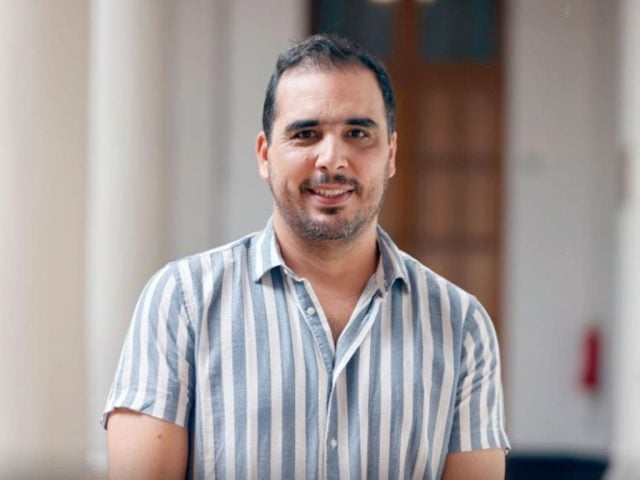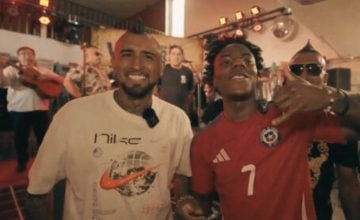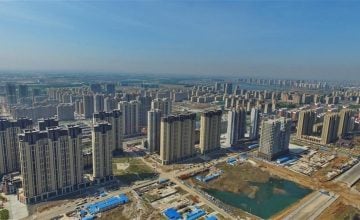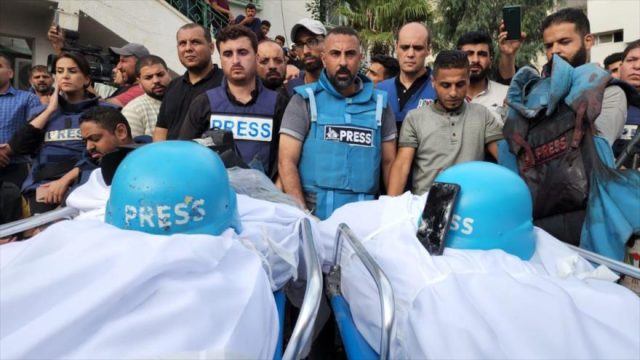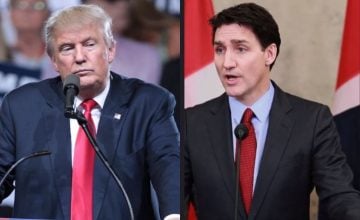In Peru, the electoral campaign is advancing for the second round of the elections to be held on June 6, in which the candidates Pedro Castillo, from the left, and Keiko Fujimori, from the right, will face off.
Castillo, a rural teacher and leader who led the strikes in 2017, was the big surprise in the first round of the elections, which were held on April 11; and he continues to cause astonishment as he rises in the polls, explains an RT report written by Edgar Romero.
The latest Ipsos poll gives Castillo 43% and Fujimori 34%; a percentage almost similar to that of the Datum survey. The measurement with the least percentage of difference is the study by the Territorial Research Center (CIT), with 37.6% and 34.5%, respectively.
Some are not very happy about this situation, those who reject the Peru Libre candidate, calling him a «communist threat,» and prefer to opt for the «lesser evil» represented by the Fuerza Popular candidate and daughter of former president Alberto Fujimori, sentenced to prison for crimes against humanity.
They say that «there will be misery» in Peru if Castillo wins
Social networks and the media have become the space where many citizens, mainly familiar faces in the media, express their messages, loaded with classism and racism.
“Their slogan is ‘no more poor in a rich country’, well, I agree with him, there will be no more poor, there will be misery and those of us who have money will be able to accommodate, but the poor will not, so stop being stupid and think, please», was the comment of Gigi Miter, host of the program Amor y Fuego (Love and Fire), of the Willax television channel.
In her remarks, Miter said that she would vote for Fujimori. Her co-host partner, Rodrigo González, accompanied her and mentioned that Castillo «is a great danger to the country». Both also resorted to the insistent discourse of the right about the possibility of installing «a dictatorship» in the country.
«There are people who come to power and you don’t get them out anymore. You just don’t get them out any more, and then tomorrow they tell you what you have to see or what you don’t have to see, the day after tomorrow they will make other decisions, they will make many decisions for you and for your family», said González.
Both presenters resorted to the trite issue of Venezuela – which has been used in electoral campaigns in other countries, such as Ecuador, recently -, emphasizing the number of Venezuelan migrants who have arrived in Peru, and reproached the candidate for not recognizing the government of Nicolás Maduro as a «dictatorship».
Faced with Miter’s message, Mario Hart, motor racing driver, singer and current member of the program «Esto es Guerra» (This is War), which is broadcast on América Televisión, wrote in a story on Instagram: «I stopped to applaud her».
«Like a pituco«
Last week, Beto Ortiz, another television host, made some controversial comments after learning that Castillo had temporarily suspended his election campaign after suffering a respiratory decompensation, for which he was rushed to a clinic, a private health center, in Lima.
«He felt decompensated 48 hours before the debate with Keiko», said the host of the «Beto a Saber» program, referring to the debate that was scheduled between the candidates last Sunday and that, finally, was held.
«And they take him to a clinic, like ‘pituco‘ [upper class person]», he added in his comment. According to the host, the candidate «should have gone to the‘post’ [community health center], like the militant proletarian that he claims to be».
Ortiz continued: «What happened, Don Pedrito? Did your ‘Bolognese’ (derogatory remark) shrink?».
Already in mid-April, Ortiz was denounced for «racism» before the Attorney General’s Office. Among the arguments put forward is having appeared before the cameras of the channel where he works, one day after the first electoral round, «wearing a typical Cajamarca suit», which has been interpreted as a «clear allusion» to Castillo, who is a native of Chota, which is located precisely in that region.
In the document, published on Twitter by lawyer Edison Tito Peralta, known as ‘Tito Wanka’, it is denounced that this action is “an act of social stigmatization and evident racism”. They add that Ortiz «with this action exceeded the limits of freedom of expression, since he used it with a spirit of mockery and contempt for the people of Cajamarca».
«Ignorant»
But the classist and racist statements began the same night of the first electoral round, when Castillo surprisingly took the lead in the results.
Then, derogatory qualifiers could be read in social networks alluding to those who voted for him, such as «shitty cholos», «ignorant» or «shitty Cajamarca».
Also phrases such as «I will never buy donuts [a pastry specialty] from any Cajamarcan». Others chose to say that «the people of the mountains and human settlements should not have access to the vote».
In addition, they even referred to a painful episode in Peru’s recent past: «Everything is [Alberto] Fujimori’s fault for not doing a good job in sterilizing them», This in allusion to a family planning policy that violates human rights that this former president (1990-2000) carried out to sterilize poor women, in order to seek that his government could demonstrate a reduction in poverty, according to what has been determined by the Prosecutor’s Office.
Is Peru sliding down into a catastrophe?
The Peruvian writer Mario Vargas Llosa has already spoken in favor of Fujimori. He said that the right-wing candidate embodies «democratic» values and that an eventual Castillo government «would be a real catastrophe».
«I leaned towards Keiko Fujimori, who seems to me to be the one that represents the possibility of continuing with the democratic system that we have installed in Peru and so that the country does not become a catastrophe» he said in an interview with RPP.
In his message, the reference to Venezuela was not lacking either, assuring that it is the «best example» to talk about this possible «catastrophe».
A similar opinion was given by the writer, always inclined towards the right-wing governments on the continent, in 2018, when Colombia was going to presidential elections. On that occasion he spoke in favor of Iván Duque, then aspiring to the Presidency for the right-wing Democratic Center, and against Gustavo Petro, the left-wing candidate.
«I believe that Petro is a very dangerous candidate […] who would open a very risky path for the future of Colombia», he said, noting that Duque’s candidacy represented «a much more democratic line».
Duque won those elections in the second round, held in June 2018, and assumed office on August 7, for a period of four years.
In November 2019 there was a popular uprising in Colombia, called the National Strike against the Duque government, which had a pause during the pandemic, but which resumed on April 28. Since then, strong anti-government protests have developed in that country, which have left more than twenty deaths, which the protesters attribute to the repression of the State security forces, accusing the president of human rights violations.
